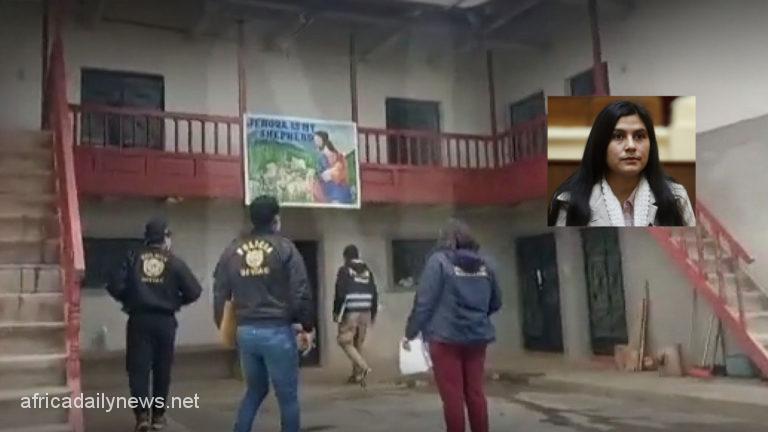The Peruvian Police on have laid siege on the private home of the Peruvian President Pedro Castillo where they had carried out a massive search for his corruption-accused sister-in-law which had come after a court-issued search warrant.
The embattled President, Castillo himself has also been the main subject of up to five criminal investigations, including some warrants for graft, and has also survived two massive impeachment attempts since taken office in July last year.
Read Also: Fourth Peruvian Prime Minster Tenders Resignation In One Year
Images which had been broadcast on several television channels had also shown some of the security agents entering Castillo’s home in the rural, northern Cajamarca region on Wednesday. This had come just hours after an unprecedented raid Tuesday at the presidential palace in Lima to execute a warrant for the detention of Castillo’s sister-in-law Yenifer Paredes.
There was no footage of Paredes being taken away Wednesday, suggesting the agents left Castillo’s house empty-handed.
Castillo said at a public event in Lima on Wednesday that “they have just entered my home.”
The prosecutor’s office would not confirm a raid had taken place.
Castillo, a 52-year-old rural school teacher and trade unionist, unexpectedly took power from Peru’s traditional political elite in elections last year.
He has come under non-stop fire from his right-wing political rivals and is also in the cross-hairs of the attorney general’s office investigating claims including public tender corruption and that Castillo plagiarized his university thesis. Opinion polls show that three-quarters of Peruvians disapprove of his management of the country, which has seen three prime ministers and seven interior ministers come and go in just over a year.
Paredes, 26, lives with Castillo and his wife who she reportedly views as “parents”.










